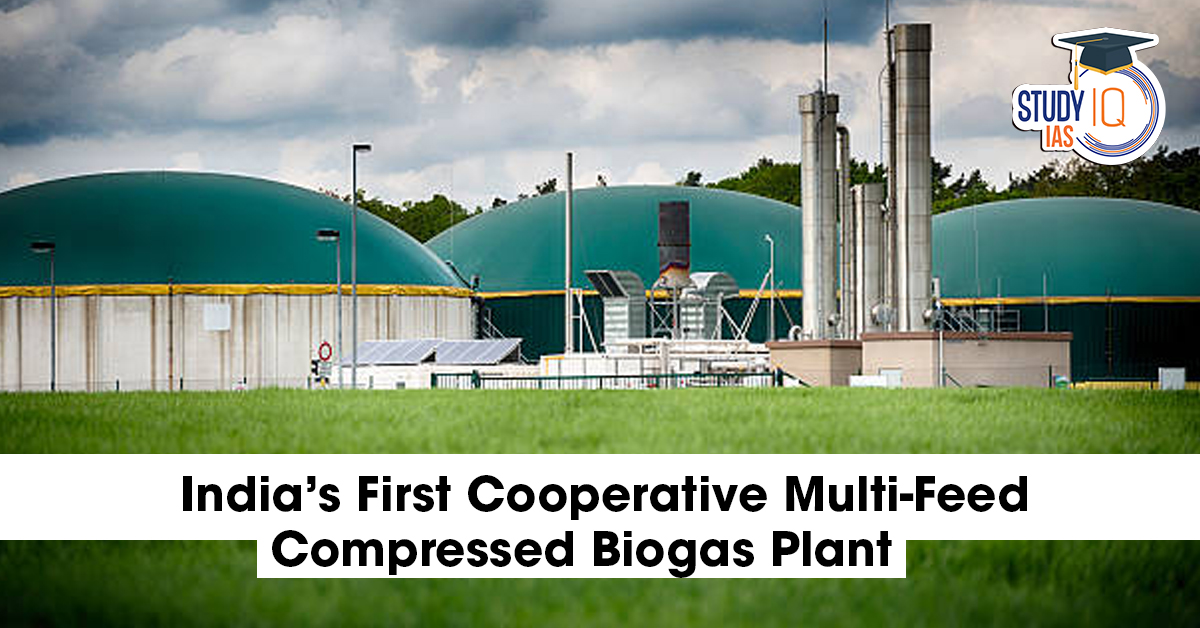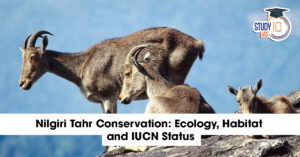Table of Contents
In a major step toward India’s green energy revolution and self-reliant rural economy, Union Home Minister and Minister of Cooperation Shri Amit Shah inaugurated the country’s first cooperative multi-feed Compressed Biogas (CBG) plant at Kopargaon in Ahilyanagar district, Maharashtra, on October 5, 2025.
This pioneering initiative marks a historic moment in India’s cooperative sugar industry, establishing a model of sustainability and circular economy that other cooperative institutions can emulate.
India’s First Cooperative Multi-Feed Compressed Biogas Plant
The newly inaugurated CBG and Potash Granule Production Plant has been set up at Maharshi Shankarrao Kolhe Sahakari Sakhar Karkhana, one of Maharashtra’s leading cooperative sugar factories.
-
Investment: ₹55 crore
-
Daily Production Capacity:
-
12 tons of Compressed Biogas (CBG)
-
75 tons of Potash (produced from jaggery and molasses)
-
-
Key Benefit: Reduces import dependency on potash and biogas, strengthening India’s Atmanirbhar Bharat mission.
This initiative makes the factory an ideal model of a circular economy, converting sugarcane by-products into renewable energy and valuable fertilizers.
Amit Shah’s Address: Boosting Cooperative Growth
Addressing the gathering, Shri Amit Shah highlighted that this is the first time in India’s cooperative history that a sugar mill has set up both a Compressed Biogas Plant and a Potash Granule Production Unit.
He announced that the Modi Government, through the National Cooperative Development Corporation (NCDC), will soon support 15 cooperative sugar mills across India in establishing similar plants, encouraging a complete circular economy in the cooperative sector.
Shah stated,
“This new beginning will pave the way for a sustainable future for India’s sugar mills, ensuring both profitability and environmental responsibility.”
Empowering Farmers and Cooperatives
The Home Minister emphasized that Prime Minister Narendra Modi’s government is committed to farmer welfare and cooperative empowerment. He cited the recently launched Mission for Aatmanirbharta in Pulses, with an outlay of ₹11,340 crore, aiming to make India self-reliant in pulse production.
Key Highlights of the Mission:
-
Procurement of pulses like arhar, urad, and masoor at 100% MSP through NAFED and NCCF.
-
1,000 processing units to be established nationwide.
-
38 lakh high-quality seed kits to be distributed to farmers.
MSP and GST Reforms to Benefit Farmers
Shri Amit Shah also highlighted recent Minimum Support Price (MSP) increases approved by the Union Cabinet, chaired by Prime Minister Modi:
-
Masoor: +₹300/qtl
-
Mustard: +₹250/qtl
-
Gram: +₹225/qtl
-
Barley: +₹175/qtl
-
Wheat: +₹160/qtl
He also announced GST reductions to 5% on key agricultural machinery and inputs such as tractors, harvesters, irrigation systems, and organic pesticides — a move expected to reduce costs and boost farm incomes.
A Model for Circular Economy
The Maharshi Shankarrao Kolhe Sahakari Sakhar Karkhana is now being recognized as an ideal example of circular economy and sustainable growth. Amit Shah encouraged sugar factories to diversify into fruit processing and other agro-industrial ventures to increase profitability and support local farmers.
He emphasized that the sugar industry’s future lies in multi-dimensional ethanol and biogas plants, making Maharashtra the torchbearer of a 100% circular cooperative economy.
Wider Cooperative Impact
The Sanjeevani Group, associated with the cooperative, has also undertaken several innovative initiatives:
-
Empowerment of women’s self-help groups (SHGs)
-
Integration of 100 Primary Agricultural Credit Societies (PACS)
-
Launch of India’s first rural call centre
-
Establishment of Sanjeevani University for 20,000 rural students
These initiatives showcase how cooperative models can drive education, employment, and sustainability together.
Swadeshi and Climate Action
Amit Shah reiterated PM Modi’s call for Swadeshi, urging citizens to use indigenous products to strengthen the domestic economy.
He also promoted PM Modi’s tree plantation initiative, encouraging every citizen to plant one tree in the name of their mother and one for Mother Earth, helping India tackle climate change and global warming challenges.
Conclusion
The inauguration of India’s first cooperative multi-feed Compressed Biogas Plant marks a transformative milestone for the country’s cooperative movement and green energy sector.
By integrating innovation, sustainability, and cooperative values, the initiative reflects the Modi government’s vision of “Atmanirbhar Bharat” — where rural India becomes the driving force of national growth through renewable energy and circular economy models.


 Graphic Processing Units (GPUs) – Work...
Graphic Processing Units (GPUs) – Work...
 Gold Imports and the Indian Economy – ...
Gold Imports and the Indian Economy – ...
 Nilgiri Tahr Conservation: Ecology, Habi...
Nilgiri Tahr Conservation: Ecology, Habi...




















